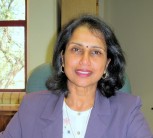Did you know that legal migration from other Southern African Development Community (SADC) countries has increased almost tenfold since 1990 to over four million people per year? And that’s only individuals from the SADC who enter South Africa legally.
As the numbers have increased, intolerance and animosity towards black immigrants have too, leading to violent incidents of xenophobia. They are seen as a threat to social and economic progress, and as unfair beneficiaries of local resources.
Linked to our history of inequality and deeply complex, xenophobia isn’t just taking place in the ‘adult world’. In-depth research by Saloshna Vandeyar, Professor in the Department of Humanities Education, has shown that it is also happening in our classrooms and on play grounds. The consequences for our society can be far-reaching.
“Racism and xenophobia in all its horrific forms is transmitted across generations and is manifested in individual behaviours, institutional norms and practices, and cultural values and patterns. As such, it disrupts the mental health and psychological functioning of both victims and perpetrators,” says Prof Vandeyar.
She adds that we are currently witnessing the repercussions: “A society that is socially destructive, destabilises good community relations, works counter to the social cohesion and national unity agenda of South Africa and ultimately, decreases productivity in all spheres of society.”
Reflecting on her research, Prof Vandeyar says: “It is time for a concerted effort by both parents and educators to teach students to value human dignity and to view each other as cosmopolitan citizens of the world to break the vicious cycle of racism and xenophobia. However, if we agree that schools are a microcosm of society then the experiences of immigrant children are reflections of the ills in society at large. Perhaps we should begin re-educating adults.”
Prof Vandeyar has devoted her career to understanding the implications of teacher and student identities in constructing classrooms inclusive of racial, linguistic, gender and ethnic identities.
Her research has led to the groundbreaking book (2015) The construction, negotiation, and representation of immigrant student identities in South African schools, co-authored with Dr Thirusellvan Vandeyar, as well as an edited book (2014) titled Good practice in culture-rich classrooms: Research informed perspectives.
For more information, contact Prof Vandeyar on: [email protected]
For an overview of her research: https://www.researchgate.net/profile/Saloshna_Vandeyar
Prof Saloshna Vandeyar
January 1, 2015

Professor Saloshna Vandeyar established and is the Director of the Centre for Diversity and Social Cohesion at the University of Pretoria (UP). She has also established a strong multidisciplinary research group and developed a theoretical framework for diverse educational settings, called Pedagogy of Compassion.
Prof Vandeyar has taught across various levels within higher education, including undergraduate and honours studies, the postgraduate Certificate of Education and MEd and PhD studies. She has also supervised numerous honours, master’s and PhD students.
Her research is in the field of social, cultural and cognitive justice in education, addressing all kinds of (in)equalities – based on race, identity, ethnicity, culture, socio-economic status, class, language, gender, religion, nationalities, political orientation, disabilities or rurality – that are produced and reproduced in educational spaces by educational processes, discourses and practices.
She is a member of the American Educational Research Association, the Comparative and International Education Society, and World Education Research Association, and serves on several international and national editorial boards.
Prof Vandeyar has published both nationally and internationally, having authored and co-authored six scholarly books, 50 journal articles, 16 book chapters and several conference proceedings. She has also delivered many keynote addresses.
Additionally, she is the primary researcher of several funded projects, and is a National Research Foundation C-rated scientist.
Prof Vandeyar is the recipient of four international research awards: from the Venus International Foundation (2015); the Comparative and International Education Society (2012); the American Educational Research Association (2011); she also received the International BMW Award for Intercultural Education (2006).
She has won three national research awards: the National Science and Technology Forum’s (NSTF) Senior Black Researcher’s Award (2007); the Higher Education South Africa’s Leadership Fellowship (2013); and the Education Association of South Africa’s Research Medal (2011). Prof Vandeyar was also a finalist in the Standard Bank Top Woman Awards in the Woman in Science category (2019); first runner-up of the Women in Science Award (2017); a finalist for the NSTF Lifetime Award (2014); and a finalist for the Shoprite Checkers Woman of the Year Award (2006). She won the Gauteng Woman in Excellence Award in 2018.
Prof Vandeyar has won institutional research awards from UP: the Laureate Award for Educational Innovation (2012); the Exceptional Young Researcher Award (2009); the Dean’s Award for International Scholarship (2013); as well as a gold medal for Research, Excellence and Achievement (2009) and Research Perseverance (2002) – two community awards for research. In addition, she is the recipient of two merit awards for teacher professionalism and teaching excellence.
 Story
Story
University of Pretoria (UP) researchers have found that the antioxidant content of certain types of tea can be likened to that found in recommended portions of fruit and vegetables.
 Infographic
Infographic
Half a cup of black tea, oolong tea or green tea contained the same amount of antioxidants with radical scavenging capabilities (RSC) as that of a 200mg vitamin C tablet.
 Story
Story
Researchers at the University of Pretoria (UP) may have identified the gene that is responsible for diet-related obesity. By exploring the role of the novel gene Slc7a8, they have made a potential breakthrough in current knowledge about the cellular mechanisms that drive fat accumulation. This understanding is crucial in developing effective treatments.
Copyright © University of Pretoria 2025. All rights reserved.
Get Social With Us
Download the UP Mobile App